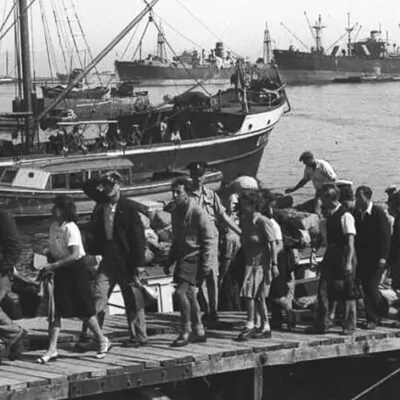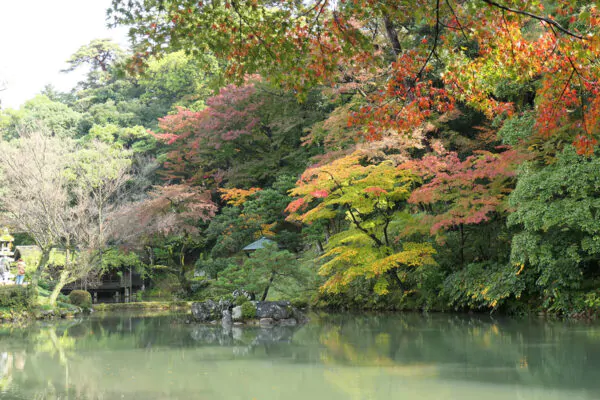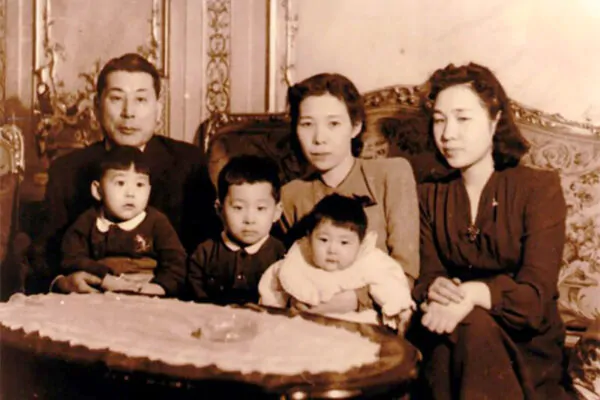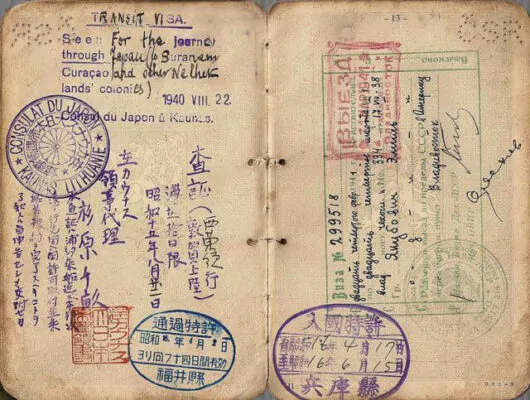Life Visa
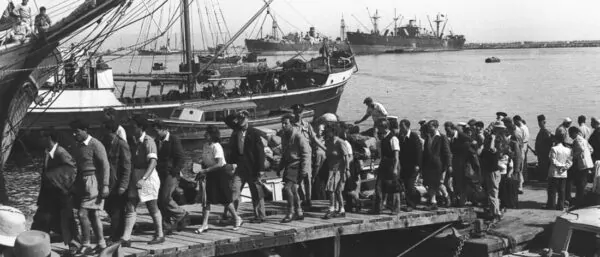
It’s a country I’ve dreamed of since my youth. After reading Vsevolod Ovchinnikov’s The Sakura Branch, I created for myself an image of a magical country so different from our own. In those years, it was one of the few available books about Japan, but we all lived behind the Iron Curtain, and there was little hope of visiting the land of the rising sun.
Recently, I had heard about a 2-week trip to Japan with a professional guide, Rena Fell, an orientalist, about whom I had heard only exceptional reviews. And it was as if everything in me was awakened – after all, dreams, even youthful ones, should be realized!
The trip was not in spring but in November – during the Japanese fall season. My first impression after a long flight was shock. I had never seen such a riot of colors: all the parks, streets and roads were decorated with trees of different colors. Having lived half my life in a southern seaside city and then in Israel, I had never seen such beauty – I wanted to photograph everything, every tree!
I took more than a thousand photos, and usually when I come back from a trip, I start to sort them out, but now I don’t want to touch them without telling you about an extraordinary person whose story will not leave anyone indifferent – Chiune Sugihara.
To understand and appreciate what happened, we need to go back 85 years. After the signing of the Ribbentrop-Molotov Act, World War II began: Nazi Germany invaded Poland and Soviet Russia invaded the Baltic States. A real danger arose over the Jews of Poland – they were relocated to Ghettos and sent to concentration camps. Therefore, streams of refugees rushed to the once peaceful and safe Lithuania, which in time also became not so safe. After the Communist takeover of Lithuania, foreign consulates were closed and their employees deported to their home countries.
During the outbreak of World War II in 1939, Dutch businessman Jan Zwartendijk was the head of the local Philips branch in Kaunas, the capital of Lithuania, selling radios, gramophones and light bulbs. The Dutch government-in-exile asked Zwartendijk, as a trusted employee of the company, to take an unpaid position as consul in Kaunas, as the previous consul was suspected of Nazi sympathies. He accepted the offer, expecting to have to help only a few Dutch citizens living in Lithuania, but in 1940 he was approached by Jewish refugees. They asked for his help in saving their lives.
Zwartendijk agreed to put an entry visa in their passports for travel to the Dutch Caribbean Island of Curaçao. However, the island had yet to be reached. And then the Japanese consul Chiune Sugihara got involved in this life-saving project. He began issuing additional transit visas to Japan to Curaçao visa holders. The lucky holders of these visas had to travel the hardest road across Russia from the West to the East, and then get to Japan by ship from Vladivostok, but it was the road to salvation, the road of Life.
Rumors spread quickly. And while Jan Zwartendijk managed to buy off the Soviet authorities with a bribe, Consul Chiune Sugihara was ordered by his superiors to stop issuing visas and return home immediately. In response, he said to his wife: “I may have to disobey the government, but if I don’t, I would be disobeying God.”
Sugihara, who spoke Russian, begged the Soviet authorities for a month to close his affairs. During that month, he and his wife Yukiko wrote visas to save the Jews; they did it 18–20 hours a day! After the consulate was closed, they continued to write visas in the hotel for three days, and when he left, he gave the consular stamp to refugees who continued to write visas by forging his signature.
An entire family could leave on one visa. In a short time, the Dutch and Japanese consuls issued more than 2,000 visas and saved more than 6,000 people from certain death!
Two fates, two men who saved thousands of lives and never talked about it. Jan Zwartendijk died in 1976. He never told anyone about his work in Lithuania. In 1997, the Yad Vashem Museum in Jerusalem honored him with the title Righteous Among the Nations, and on September 10, 2012, Jan Zwartendijk was posthumously awarded the Lithuanian Cross for saving the lives of the dying.
On October 4, 1984, Yad Vashem recognized Chiune Sugihara as Righteous Among the Nations, and he died two years later in Japan. He is now considered a hero in Japan, and the port of Tsuruga, where the refugee ships arrived, has been renamed the Port of Humanity. There is a museum there that tells this story from the distant past.
Some of us live an ordinary life without exploits, while others are faced with a choice: to continue their measured existence and live quietly like everyone else, or to make a Choice and save someone’s life. And this choice is often the hardest thing that can happen to us. Not everyone of us is capable of making it. Jan Zwartendijk and Chiune Sugihara were able to do it. Each of them managed to remain a Man with a capital letter.












